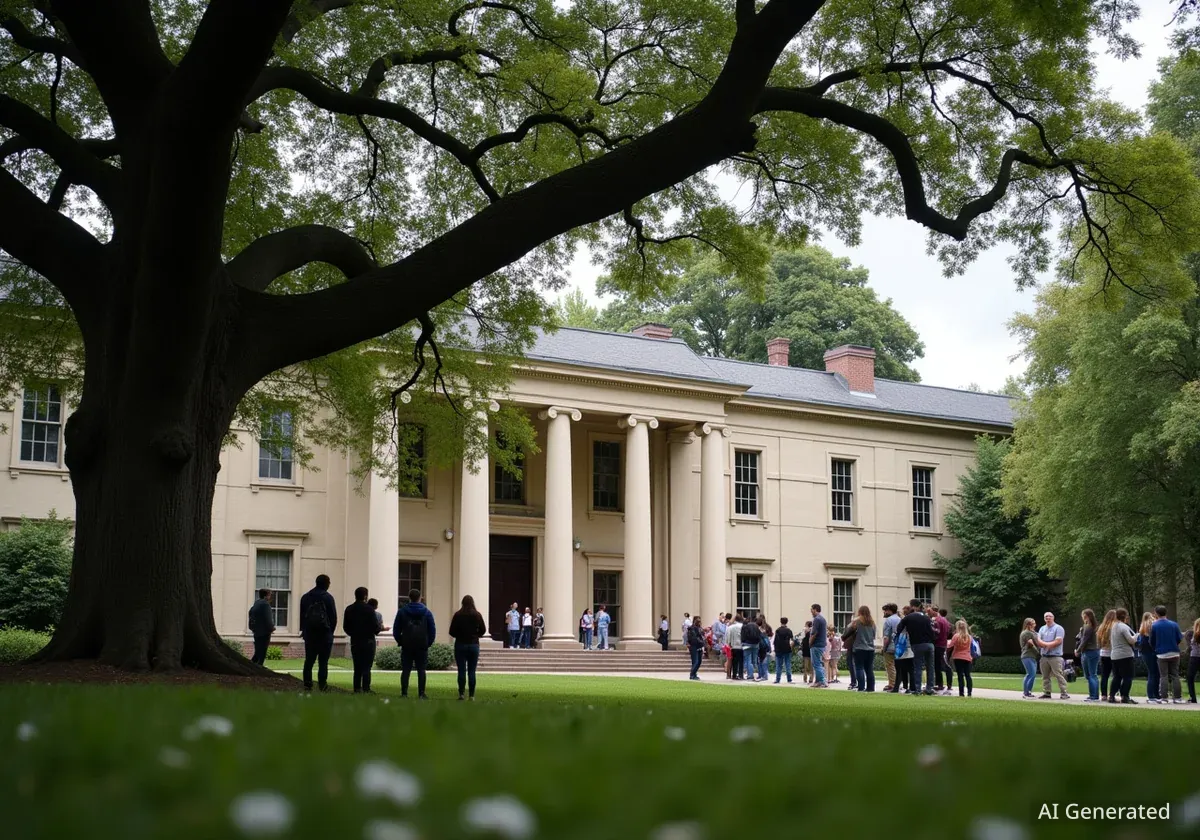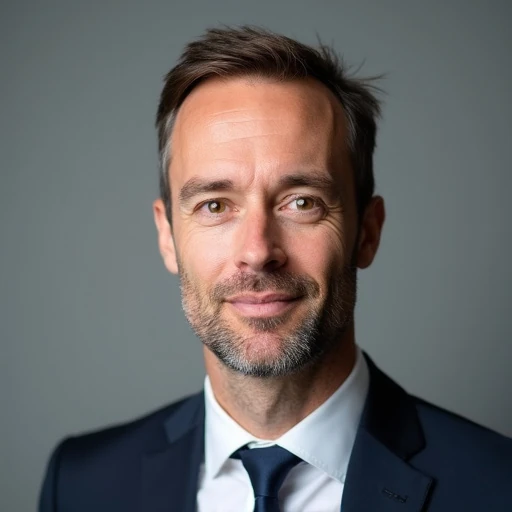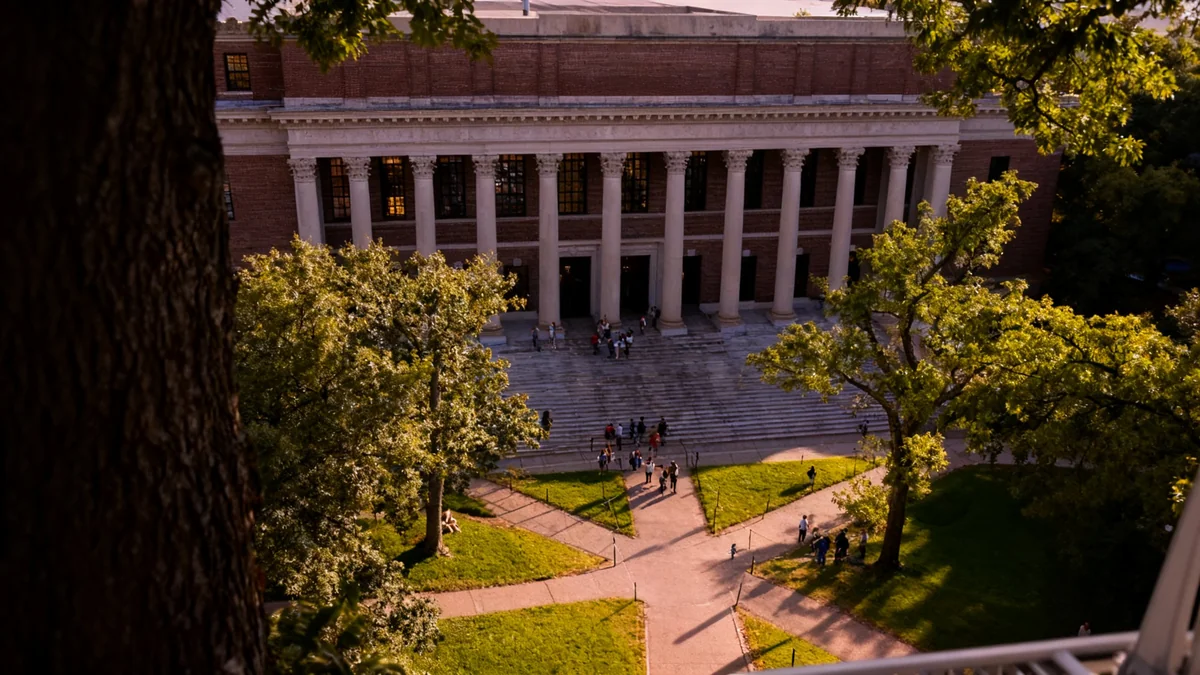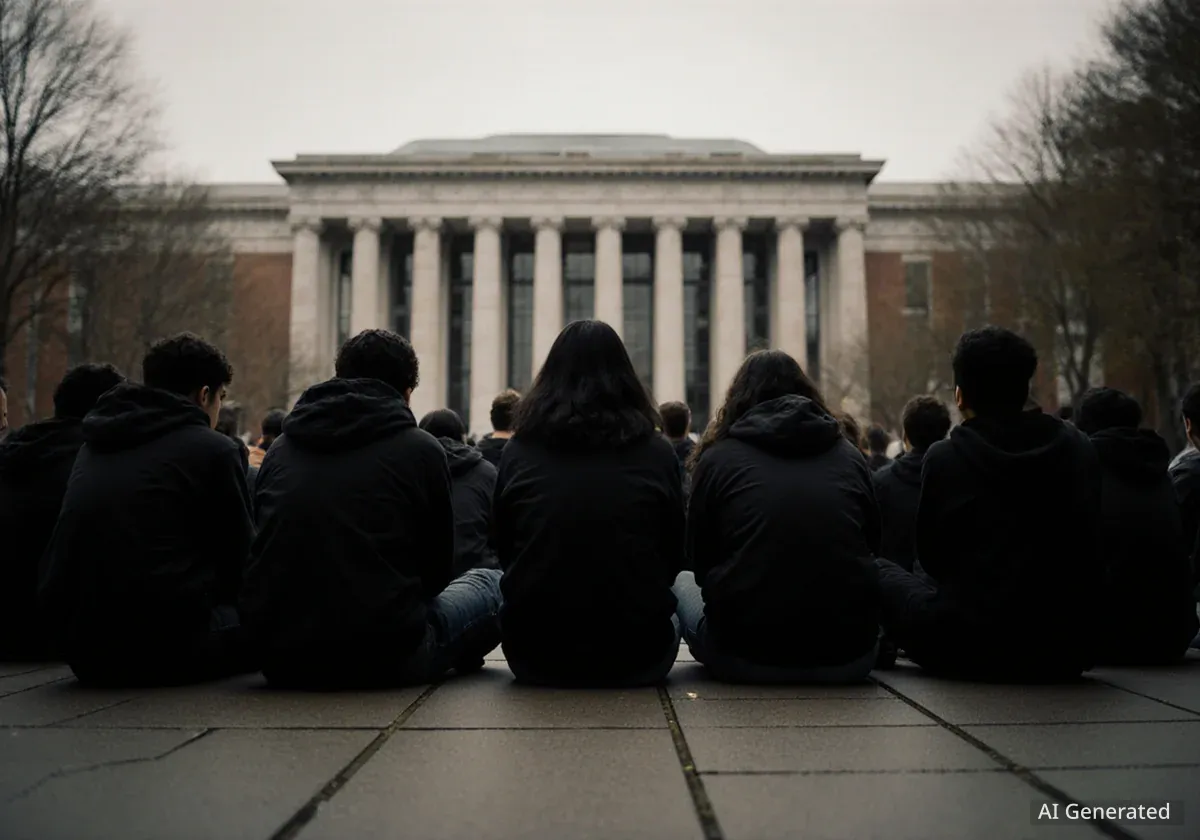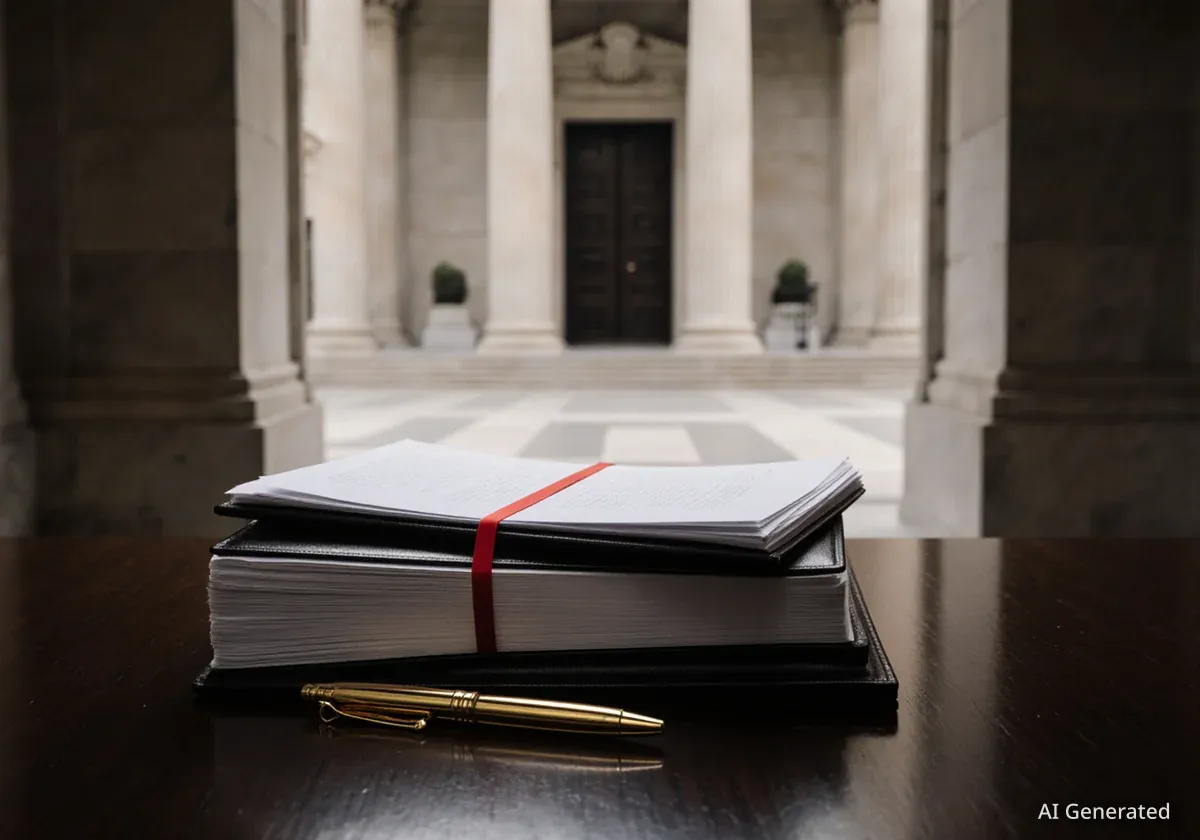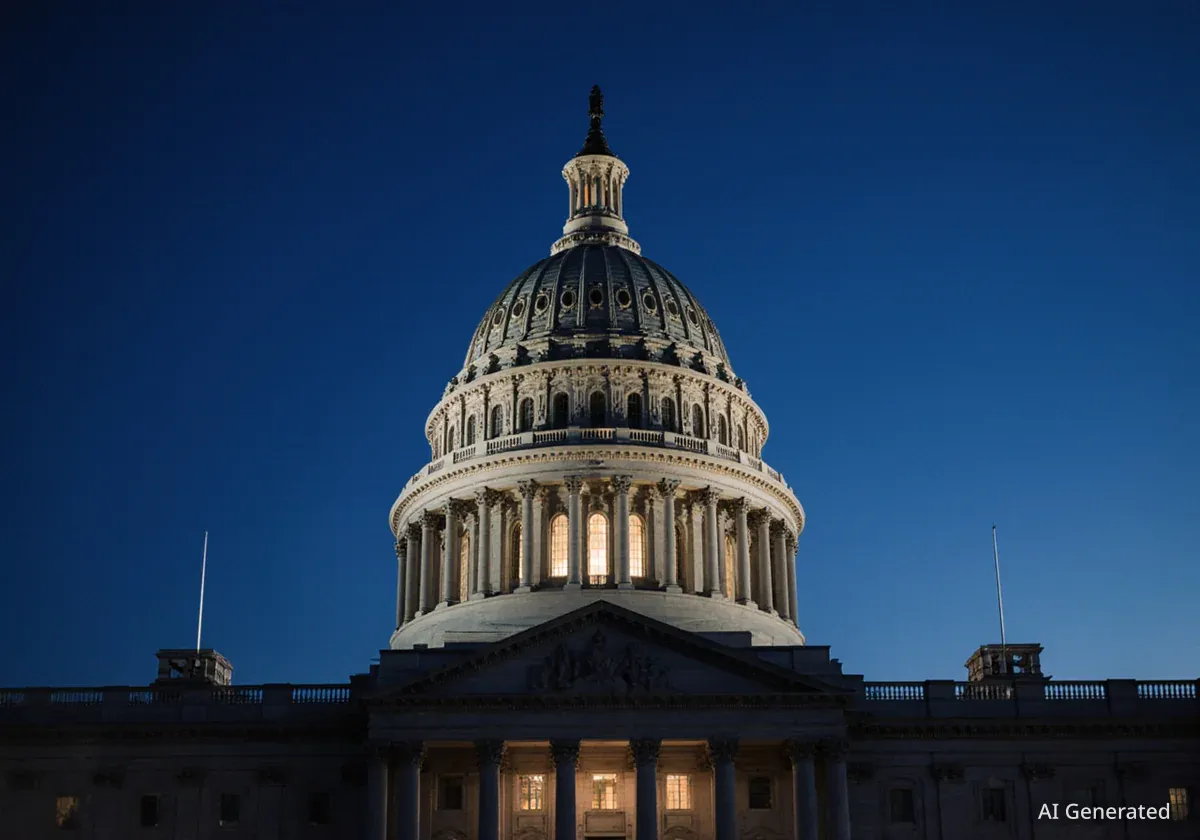The search for the next president of Louisiana State University has narrowed to three finalists, including McNeese State University President Wade Rousse. However, his candidacy is drawing significant scrutiny from LSU students who have raised concerns about his close ties to Louisiana Governor Jeff Landry.
During a public comment session before interviews commenced on Wednesday, several students voiced their opposition. They expressed apprehension that Rousse is the governor's preferred candidate, potentially compromising the university's independence.
Key Takeaways
- McNeese President Wade Rousse is one of three finalists for the LSU presidency.
- LSU students have publicly opposed his candidacy, citing concerns about his alignment with Gov. Jeff Landry.
- The other finalists are James Dalton from the University of Alabama and Robert Robbins, former president of the University of Arizona.
- The LSU Board of Supervisors will make the final decision after further interviews with campus and community groups.
Presidential Search Narrows Amid Controversy
The LSU presidential search committee has officially advanced three candidates to the final round of consideration. The finalists were selected from an initial pool that included other prominent academic leaders. The position became vacant after former LSU President William Tate departed in May 2025 to lead Rutgers University.
The three individuals moving forward are:
- Dr. Wade Rousse: Current President of McNeese State University.
- Dr. James Dalton: Provost at the University of Alabama.
- Dr. Robert Robbins: Former President of the University of Arizona.
Two other candidates interviewed for the role, Interim LSU President Matt Lee and Tulane's Vice President of Research Giovanni Piedimonte, were not selected as finalists. The next phase of the process involves intensive interviews with students, faculty, and community leaders, scheduled for Thursday, Friday, and Monday.
Students Voice Concerns Over Political Influence
The selection process took a contentious turn Wednesday morning. Before the search committee began its interviews, it held a period for public comment, a standard procedure designed to gather community feedback. During this session, several LSU students took the opportunity to speak out directly against Rousse's candidacy.
The primary concern articulated by the students is Rousse's perceived close relationship with Governor Jeff Landry. Speakers suggested that Rousse is the governor's hand-picked choice for the presidency, raising fears about the potential for political interference in university governance and academic affairs.
For many students, the independence of the university's leadership from state political maneuvering is a critical issue. The flagship university's president is expected to advocate for the entire LSU system, a role they fear could be compromised by an overly close alliance with the governor's office.
The Role of a University President
The president of a major public university like LSU is responsible for overseeing academic programs, managing a multi-billion dollar budget, leading fundraising efforts, and representing the institution to state lawmakers, alumni, and the public. Maintaining autonomy from political pressure is widely seen as essential for protecting academic freedom and making decisions in the best interest of the university.
Dr. Rousse's Background and Perspective
Dr. Wade Rousse has had a long and established career at McNeese State University, located in Lake Charles. He was sworn in as the university's eighth president on December 7, 2024. Before assuming the presidency, he held several key positions at the institution, including professor, dean of the Burton College of Business, and executive vice president.
When he was named a top-five candidate last week, Rousse addressed the opportunity and his motivations in a public statement. He acknowledged the encouragement he received from higher education leaders across the state to pursue the role.
"Our team’s success at McNeese has been recognized and celebrated across Louisiana. In recent weeks, several higher education leaders and stakeholders have encouraged me to consider pursuing the presidency of Louisiana State University. My love for McNeese runs deep, but my goal has always been to make the greatest possible impact on higher education in my home state."
Rousse emphasized the central role LSU plays in the state's educational landscape and confirmed his interest in the position as a way to broaden his impact.
"LSU plays a pivotal role in shaping Louisiana’s higher education landscape and overall well-being, and I can confirm that I am thoughtfully exploring this opportunity," his statement concluded.
What Happens Next in the Selection Process
With the field now narrowed to three, the selection process enters its final, crucial stage. Each of the finalists—Rousse, Dalton, and Robbins—will participate in a series of rigorous interviews over the next several days. These meetings will not be limited to the search committee.
Final Interview Schedule
The final three candidates will engage in meetings with LSU students, faculty members, and key community and business leaders. This multi-day process is designed to give various stakeholders a chance to interact with and evaluate each finalist before a decision is made.
These sessions allow the campus community to ask direct questions about the candidates' visions, leadership styles, and stances on important issues, including the concerns about political independence raised by students.
Ultimately, the final decision rests with the LSU Board of Supervisors. The board will consider the feedback from the search committee and the various stakeholder groups before voting to select the next president of the university. The timeline for their final vote has not yet been announced, but it is expected to follow the conclusion of the final interviews.
